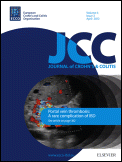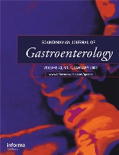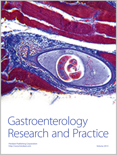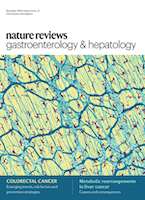
Journal of Crohns & Colitis
Scope & Guideline
Fostering breakthroughs in bowel disease research.
Introduction
Aims and Scopes
- Clinical Research and Trials:
The journal publishes findings from clinical trials and observational studies that explore the efficacy and safety of various treatment modalities, including biologics and small molecules. - Pathophysiology and Disease Mechanisms:
Research focusing on the underlying mechanisms of IBD, including genetic, immunological, and microbiological factors that contribute to disease onset and progression. - Diagnostic Innovations:
Studies on new diagnostic tools, such as imaging techniques and biomarkers, aimed at improving early detection and disease monitoring. - Nutritional and Dietary Interventions:
Exploration of how dietary patterns and nutritional interventions influence disease activity and patient outcomes in IBD. - Quality of Life and Patient-Centered Care:
Research addressing the psychosocial aspects of IBD, including quality of life, mental health, and the impact of the disease on daily living. - Epidemiology and Health Services Research:
Studies that investigate the epidemiology of IBD, healthcare utilization, and disparities in access to treatment.
Trending and Emerging
- Microbiome Research:
There is a notable increase in studies exploring the gut microbiota's role in IBD pathogenesis, treatment response, and disease management, indicating a shift towards personalized medicine approaches. - Biologic and Small Molecule Therapies:
Research on newer biologics and JAK inhibitors is on the rise, reflecting their growing importance in treatment protocols for IBD, particularly in refractory cases. - Digital Health and Telemedicine:
The integration of digital health tools and telemedicine in managing IBD has gained momentum, especially in light of the COVID-19 pandemic, highlighting patient-centered approaches to care. - Real-World Evidence Studies:
An increasing number of publications are focused on real-world data and observational studies to assess the effectiveness and safety of treatments in diverse patient populations. - Patient-Reported Outcomes and Quality of Life:
There is a growing emphasis on understanding the patient's perspective, including the impact of IBD on quality of life and mental health, as well as the importance of shared decision-making in treatment.
Declining or Waning
- Traditional Pharmacotherapy:
Research on older pharmacological treatments, such as 5-aminosalicylic acids and thiopurines, has decreased in frequency, likely due to the increasing focus on biologics and novel therapies. - Surgical Approaches:
While surgical management remains important, the volume of studies solely focused on surgical techniques without integration into broader treatment paradigms has diminished, as there is a shift towards understanding IBD as a chronic disease needing multidisciplinary management. - Animal Models of IBD:
The reliance on animal models for studying IBD mechanisms may be waning as there is a growing emphasis on human-derived data and translational research that directly informs clinical practice.
Similar Journals

SCANDINAVIAN JOURNAL OF GASTROENTEROLOGY
Pioneering Research for Enhanced Patient OutcomesSCANDINAVIAN JOURNAL OF GASTROENTEROLOGY, published by Taylor & Francis Ltd, is a leading journal in the field of gastroenterology, dedicated to advancing clinical and experimental research related to digestive health. With an ISSN of 0036-5521 and an E-ISSN of 1502-7708, this journal provides a platform for high-quality research that addresses the complexities of gastrointestinal diseases. Since its inception in 1966, the journal has consistently contributed valuable insights and is currently categorized in the Q2 quartile of gastroenterology journals, reflecting its impact and relevance in the field, with a Scopus rank of 87 out of 167 in Medicine - Gastroenterology. Researchers and practitioners are encouraged to explore the journal's archives to enhance their understanding and stay abreast of innovative strategies for managing gastrointestinal disorders. The SCANDINAVIAN JOURNAL OF GASTROENTEROLOGY remains a crucial resource for those committed to improving patient outcomes through rigorous scientific inquiry and the sharing of impactful findings.

Crohns & Colitis 360
Championing collaboration in Crohn's and colitis research.Crohns & Colitis 360, published by Oxford University Press, is a leading open access journal that has been at the forefront of gastrointestinal research since its launch in 2019. With an E-ISSN of 2631-827X, this journal aims to foster innovation and collaboration within the field of gastroenterology, focusing on diseases such as Crohn's disease and ulcerative colitis. As of 2023, it has earned a commendable Q2 ranking in the gastroenterology category, positioning it among the top 50% of journals in its field, with a Scopus rank of 99 out of 167. Crohns & Colitis 360 not only provides a platform for peer-reviewed research but also seeks to disseminate clinical guidelines, reviews, and groundbreaking studies, making it an essential resource for researchers, healthcare professionals, and students dedicated to advancing the understanding and treatment of inflammatory bowel diseases. Emphasizing accessibility, the journal has been open access since its inception, ensuring that cutting-edge research is readily available to a global audience. This commitment to knowledge sharing significantly enhances its impact and relevance in the ever-evolving landscape of gastroenterology.

Pediatric Gastroenterology Hepatology & Nutrition
Advancing pediatric health through innovative research.Pediatric Gastroenterology Hepatology & Nutrition is a pivotal academic journal published by the Korean Society of Pediatric Gastroenterology & Nutrition, focusing on the critical fields of pediatric gastroenterology, hepatology, and nutrition. Located in South Korea, this journal aims to disseminate high-quality research, review articles, and clinical studies to advance knowledge and practice in the care of children with gastrointestinal and nutritional disorders. With a Converged Years span from 2012 to 2024 and categorized in the Q2 and Q3 quartiles in 2023 across multiple related fields, the journal holds a significant position within the academic community, reflecting its impactful contribution to the discipline. Although currently not open access, the journal ensures that content is accessible to a broad audience through various institutional subscriptions. The journal appeals to researchers, healthcare professionals, and students alike, providing an essential platform for the exchange of innovative ideas and research findings aimed at improving pediatric patient care.

Minerva Gastroenterology
Exploring New Frontiers in Digestive Health ResearchMinerva Gastroenterology, published by EDIZIONI MINERVA MEDICA, is a notable academic journal dedicated to advancing the field of gastroenterology and related disciplines. With an ISSN of 2724-5985 and an E-ISSN of 2724-5365, this journal gathers innovative research from diverse areas including internal medicine, endocrinology, and metabolism. Though characterized by its open-access policies, Minerva Gastroenterology aims to provide a platform for high-quality scholarly articles with an emphasis on critical reviews, clinical studies, and translational research. Since its inception in 2021, the journal has managed to secure a reputation reflected in its Q3 rank across multiple categories in 2023, as well as its standing in Scopus rankings, positioning it in the 45th to 47th percentile among renowned medical journals. Situated in Turin, Italy, it fosters collaboration and knowledge-sharing among researchers and practitioners, making it an essential resource for those seeking to deepen their understanding of gastroenterological conditions and enhance clinical practices.

INFLAMMATORY BOWEL DISEASES
Transforming insights into effective treatments.INFLAMMATORY BOWEL DISEASES is a premier journal published by Oxford University Press, Inc., dedicated to advancing research within the fields of gastroenterology and immunology. With an impressive impact factor reflecting its status as a Q1 category journal in both gastroenterology and immunology and allergy, it ranks 17th out of 167 in gastroenterology and 53rd out of 233 in immunology, underscoring its influence and authority within the scientific community. Since its inception in 1995 and continuing through to 2024, the journal has become an essential resource for researchers, healthcare professionals, and students, serving as a platform for the latest findings in the diagnosis, treatment, and management of inflammatory bowel diseases. While the journal operates under a subscription-based model, it is recognized for its rigorous peer-review process and commitment to publishing high-caliber, impactful studies that contribute significantly to understanding and treating these complex conditions.

JOURNAL OF PEDIATRIC GASTROENTEROLOGY AND NUTRITION
Exploring the vital link between digestion and childhood well-being.Journal of Pediatric Gastroenterology and Nutrition is a premier academic journal published by Wiley, focusing on the critical intersection of pediatric gastroenterology and nutrition. Established in 1982, this journal has been at the forefront of research and clinical practices for over four decades and continues to contribute invaluable insights to the fields of pediatrics and gastrointestinal health, boasting a Q1 ranking in Pediatrics, Perinatology and Child Health and a Q2 ranking in Gastroenterology as of 2023. The journal features a comprehensive array of original research, review articles, and clinical studies aimed at improving the understanding and management of pediatric gastrointestinal disorders and nutrient imbalances. Edited with expertise, the Journal of Pediatric Gastroenterology and Nutrition serves as an essential resource for clinicians, researchers, and students dedicated to advancing the well-being of children with digestive health issues. Readers can access the journal's impactful research studies through traditional subscriptions.

Gastroenterology Research and Practice
Elevating Standards in Gastrointestinal ResearchGastroenterology Research and Practice is a leading Open Access journal dedicated to advancing the field of gastroenterology and hepatology. Published by HINDAWI LTD, this journal offers a platform for researchers, clinicians, and healthcare professionals to share their findings and insights on cutting-edge topics in digestive health. With an ISSN of 1687-6121 and an E-ISSN of 1687-630X, it has established its significance within the academic community, evidenced by its ranking in the 2023 Scopus metrics, where it is positioned in the third quartile for both gastroenterology and hepatology disciplines. The journal is recognized for disseminating high-quality, peer-reviewed articles that contribute to the understanding of gastrointestinal disorders, therapeutic advancements, and innovative practices. Since its inception as an Open Access journal in 2008, Gastroenterology Research and Practice has removed barriers to access, ensuring that vital research reaches a global audience. This ongoing commitment to increasing accessibility, alongside its continuous publication from 2009 to 2024, underscores its importance as a resource for the academic and clinical communities striving to improve patient outcomes in digestive diseases.

WORLD JOURNAL OF GASTROENTEROLOGY
Advancing the frontiers of digestive health.WORLD JOURNAL OF GASTROENTEROLOGY, published by BAISHIDENG PUBLISHING GROUP INC, stands at the forefront of gastrointestinal research, providing a critical platform for the dissemination of high-quality studies in the field. With an impressive impact factor reflected in its Q1 rankings in both Gastroenterology and Miscellaneous Medicine, this journal is recognized for its rigorous peer-review process and commitment to advancing knowledge and practices related to digestive health. Covering comprehensive scopes from clinical advancements to innovative therapies, the journal serves an essential role for researchers, clinicians, and students, enabling them to stay updated on the latest developments and findings from 1998 through 2024. The open access model facilitates broader accessibility, ensuring that groundbreaking research reaches a global audience. The journal's ranking within the top 15% of Scopus demonstrates its significant contribution to the academic community, making it a valuable resource for advancing the science of gastroenterology.

Korean Journal of Gastroenterology
Championing Breakthroughs in GastroenterologyKorean Journal of Gastroenterology (ISSN: 1598-9992, E-ISSN: 2233-6869), published by the Korean Society of Gastroenterology, has been a premier outlet for research and advancements in the field of gastroenterology since its inception in 1968. This open-access journal, based in South Korea, fosters a global dialogue on gastrointestinal health, embracing contributions from a diverse array of disciplines within medicine. It is currently ranked in the Q4 quartile for miscellaneous medicine and holds a Scopus rank of #323 out of 636 in general medicine, reflecting its commitment to publishing impactful research despite its relatively recent establishment in high-impact metrics. With a continuous publication timeline extending through to 2024, the journal aims to enhance understanding of gastrointestinal disorders and promote innovative treatments, making it an essential resource for researchers, clinicians, and students alike who seek to stay abreast of the latest developments and clinical applications in gastroenterology.

Nature Reviews Gastroenterology & Hepatology
Leading Insights in Gastroenterology & HepatologyNature Reviews Gastroenterology & Hepatology is a premier academic journal published by NATURE PORTFOLIO, specializing in the vital fields of gastroenterology and hepatology. With an impressive impact factor and categorized in Q1 for both disciplines, this journal ranks at the top of its field, with Scopus rankings placing it in the 99th percentile for gastroenterology and hepatology. The journal aims to provide critical reviews that synthesize the latest research findings, clinical practices, and breakthroughs, catering to researchers, healthcare professionals, and students alike. With its wide-ranging access options, it promotes the dissemination of knowledge essential for advancements in understanding digestive and liver disorders. The journal has been committed to academic excellence since its convergence in 2009, continuing to shape the future of gastroenterological and hepatological research through rigorous peer-reviewed content.